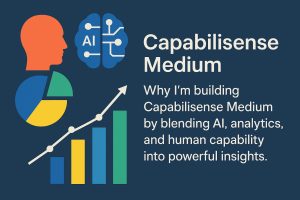Content Attributes
The pandemic has affected millions of lives across the globe. Many people suffered the loss of their loved ones, and many families lost their sole breadwinners, creating a question of survival.
Though the FCC has provided home phone access to numerous households, the rapid advancement of technology demands a better alternative. That is why the Emergency Broadband Benefit (EBB) Program came into existence.
The EBB provides discounted or free-of-cost communication services like free wireless phones to the beneficiaries, but how do you figure out if you qualify for the program? Here are six essential criteria for the EBB program:
1. Member of Free and Reduced-Price School Lunch Program
Started in 1946 by president Harry Truman, the National School Lunch Program(NSLP) provides meal assistance to numerous residential childcare institutions, public schools, and non-profit private schools.
It seeks to provide free, nutritious, and balanced food to all children through school lunches.
Your household shall be eligible for the Emergency Broadband Benefit if your child or dependant is enrolled in the Free and Reduced-Price School Lunch Program. Even if one member of your household qualifies for the program, it automatically applies to your entire family.
2. Beneficiaries of Supplemental Nutrition Assistance Program (SNAP)
The Supplemental Nutrition Assistance Program, a federally assisted program, supports needy families by providing them with financial assistance to help them purchase nutritious and healthy food for themselves.
If you or any family member qualifies for the SNAP, your household qualifies for the EBB program. Some other programs that can help you to be eligible for the EBB are as follows:
- Medicaid
- Federal Public Housing Assistance (FPHA)
- Veterans and Survivors Pension Benefit
- Supplemental Security Income (SSI)
3. A person experiencing a furlough or job loss
A lot of people lost their source of income and livelihood as a result of the pandemic. Many businesses were seriously affected by the financial crisis caused by the pandemic. Companies had to let go of numerous employees as they shut down their operations and went bankrupt.
As there are a lot of financial problems faced by such families, the EBB program offers communication services like free wireless phones and broadband services to them.
If any member of your family lost their job or got laid off, you may be eligible for the program and apply for the same. You’ll need to submit the necessary documents to prove your job loss, furlough, or bankruptcy.
4. Individuals with low household income
The Federal Poverty Guidelines determine whether you qualify for the Lifeline Program or not. If your household income is 135% or less than the Federal poverty guidelines, you are eligible for the EBB program. The policies vary according to the state and the household size.
5. Members of Tribal assistance program
The tribal land residents can be eligible for the Lifeline if their household is 135% or less than the federal poverty guidelines. Following are some of the programs whose beneficiaries can qualify for the Lifeline program:
- Food Distribution Program on Indian Reservations
- Bureau of Indian Affairs General Assistance
- Head Start
- Bureau of Indian Affairs General Assistance
- Tribal TANF
6. Individuals with substantial loss of income
The income loss caused by the pandemic and the consequent lockdowns has adversely affected thousands of families. They face numerous challenges in their daily lives, from medical expenses to connectivity to their peers and essential services.
Suppose you or any of your household members have suffered from a substantial income loss since February 29, 2020. In that case, you can apply for the Lifeline program to get broadband benefits and reduce your phone and internet bills significantly.
Though the EBB program helps reduce the internet connectivity expenses, you may have to pay the expenses that aren’t covered under the program. You will also need to share essential documents for any of the above programs to be eligible.



